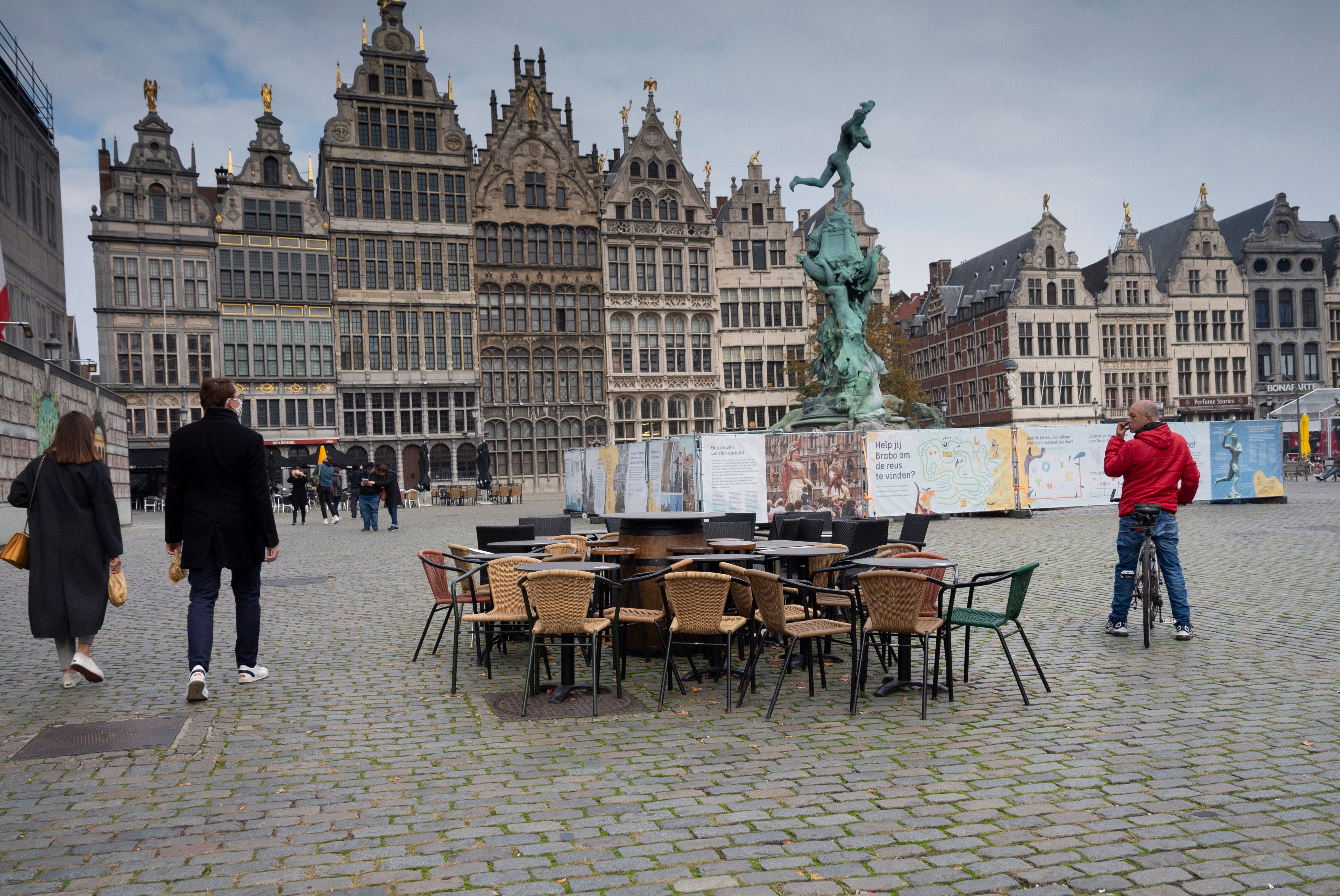Belgium fears virus "tsunami" as virus cases keep soaring
Bars and restaurants across Belgium shut down for a month and a night-time curfew has begun as health authorities warned of a possible “tsunami” of COVID-19 cases

Bars and restaurants across Belgium shut down for a month and a night-time curfew took effect Monday as health authorities warned of a possible “tsunami" of new virus cases in the hard-hit nation that host the European Union's headquarters.
The new measures aim to limit social interactions to slow down the exponential growth of the pandemic in the nation of 11.5 million people. The new surge of coronavirus cases has already prompted several hospitals to delay non-essential operations to focus on treating COVID-19 cases.
“We are really very close to a tsunami,” Health Minister Frank Vandenbroucke told broadcaster RTL.
According to the European Centre for Disease Prevention and Control, Belgium recorded more than 700 infections per 100,000 people over the last 14 days, the second-worst European record behind the Czech Republic which had 828 per 100,000.
Yves Van Laethem, the COVID-19 crisis center spokesman, said Monday that 7,876 daily new cases were diagnosed on average over the past seven days, up 79% compared to the previous week. Van Laethem said the epidemiological situation could be even worse, given delays in the publication of test results.
To fight the spread of the disease, Belgium's curfew will be enforced from midnight until 5:00 a.m., at least for a month. Alcohol sales will be banned after 8:00 p.m., while the number of people that residents can see socially outside their households will be reduced from three to just one all month.
People have been ordered to work from home wherever possible. Thousands of students have been affected as several universities have demanded that only one seat in five in lecture halls hosting more than 50 people can be occupied.
As of Monday, 2,485 COVID-19 patients were hospitalized in Belgium, including 412 in intensive care. Authorities have warned that intensive care units will hit its capacity of 2,000 beds by mid-November if new cases continue to soar at the same pace.
Prime Minister Alexander De Croo said the situation in Belgium now is more serious than it was in March when the country implemented a national lockdown.
“We have three times as many people in intensive care in hospitals. So the situation in the hospitals is serious. It will continue to deteriorate," De Croo told RTL.
___
Follow AP pandemic coverage at http://apnews.com/VirusOutbreak and https://apnews.com/UnderstandingtheOutbreak
Bookmark popover
Removed from bookmarks